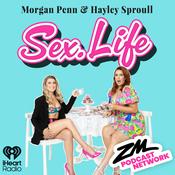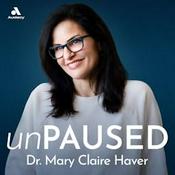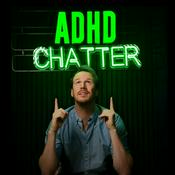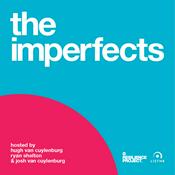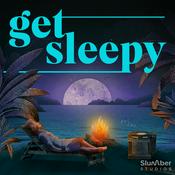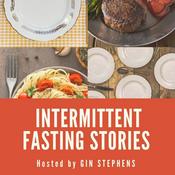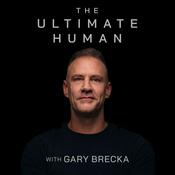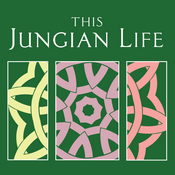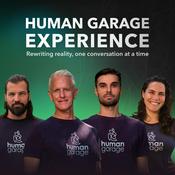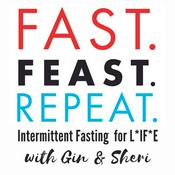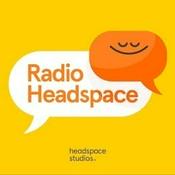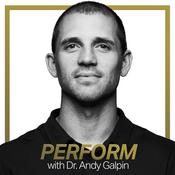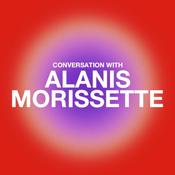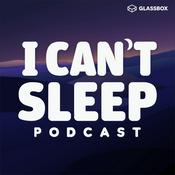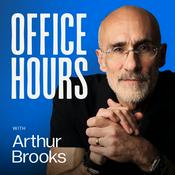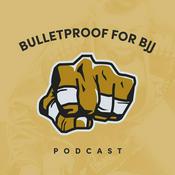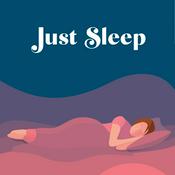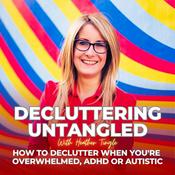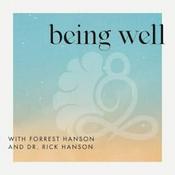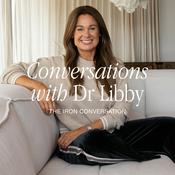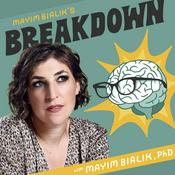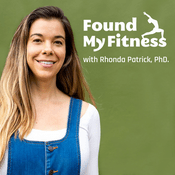32 episodes
- When Kath who lives with dementia became confused inside a public toilet, her husband Bob knew something had to change.
What started as one small fix in the tiny coastal town of Tumby Bay, South Australia, soon grew into action by the local council — and sparked a ripple effect reaching communities far beyond their town.
No one can make big changes on their own. Dementia Australia’s National Manager Dementia-Friendly Communities Belinda Curtis explains how small actions can lead to lasting change and why connection really matters when it comes to assisting those living with a dementia diagnosis.
+++
Hold The Moment is a podcast from Dementia Australia, produced by Deadset Studios and hosted by Jim Rogers. Follow Dementia Australia on Instagram and find support resources online. Dementia Australia’s Dementia-Friendly Communities program informs and supports people who want to collaborate with people living with dementia to create communities where everyone can participate.
This episode was produced by Amelia Navascues with sound design by Slade Gibson. The executive producers are Sarah Dabro and Kellie Riordan. Production manager is Ann Chesterman.
Dementia Australia and Deadset Studios acknowledge the Traditional Owners of Country throughout Australia and recognise their continuing connection to lands, waters and communities. We pay our respect to their Elders past and present, and extend that respect to all Aboriginal and Torres Strait Islander peoples today. - So much changes when someone you love is diagnosed with dementia and often the most difficult adjustment can be coming to terms with how it affects your relationship.
You might still be parent-and-child, romantic partners, siblings, but you’ll also have to step into a new role entirely as a carer.
For Col, this feels like ‘taking his turn’. His wife Shirley took on much of the caring work when they were raising kids together, and now Col and the kids are looking after her.
For Sanna, who cared for her mother, the relationship shift was much more dramatic. After being diagnosed, Sanna’s mother didn’t recognise her at all and it looked, for a little while, like their connection might’ve disappeared altogether...
Dementia changes things and it will change your relationship with the person you’re caring for – but you can take steps to ease the change for both of you.
+++
Hold The Moment is a podcast from Dementia Australia, produced by Deadset Studios and hosted by Jim Rogers and Hamish Macdonald. For support, you can contact the National Dementia Helpline on 1800 100 500 (24 hours a day, seven days a week). The National Dementia Helpline is funded by the Australian Government.
Follow Dementia Australia on Facebook and Instagram or find support resources on our website.
This episode was produced by Gia Moylan and Liam Riordan, with sound design by Ryan Pemberton. The executive producers are Gia Moylan and Kellie Riordan. Production manager is Ann Chesterman.
Dementia Australia and Deadset Studios acknowledge the Traditional Owners of Country throughout Australia and recognise their continuing connection to lands, waters and communities. We pay our respect to their Elders past and present, and extend that respect to all Aboriginal and Torres Strait Islander peoples today. - It’s tough watching someone you love change, especially when it starts to shift the way you relate to each other. As a carer, your role evolves in ways you may not have expected, which can make things feel uncertain. This episode has tips and ideas to help you maintain your connection.
If you’d like personalised advice on how to reconnect or just smooth any tensions as your relationship changes, you can contact the National Dementia Helpline on 1800 100 500. You can call 24 hours a day, or request a callback, start a webchat or send an email with whatever is on your mind.
To hear how other carers have re-connected with their loved ones, you can also [listen to this episode of Hold the Moment] .
+++
Hold the Moment is a podcast from Dementia Australia, produced by Deadset Studios.
Follow Dementia Australia on Instagram and find support resources online.
This episode was hosted by Jim Rogers and Kristin, a National Dementia Helpline Advisor. It was produced by Luci McAfee. Executive producers are Gia Moylan and Kellie Riordan.
The National Dementia Helpline is funded by the Australian Government.
Dementia Australia and Deadset Studios acknowledge the Traditional Owners of Country throughout Australia and recognise their continuing connection to lands, waters and communities. We pay our respect to their Elders past and present, and extend that respect to all Aboriginal and Torres Strait Islander peoples today.
Dementia Australia acknowledges and appreciates the support of the Australian Government for this initiative. - Caring for others often means putting your own needs on the back burner but you can’t give your best if you're running on empty. Self-care is crucial to avoid burnout and stay healthy.
This episode has tips to help you find time for yourself while in the chaos of caring.
If you’d like personalised support, you can contact the National Dementia Helpline on 1800 100 500. You can call 24 hours a day, or request a callback, start a webchat or send an email with whatever is on your mind.
To hear how other carers are managing their self-care, you can listen to this episode of Hold The Moment]
+++
Hold the Moment is a podcast from Dementia Australia, produced by Deadset Studios.
Follow Dementia Australia on Facebook and Instagram or find support resources on our website.
This episode was hosted by Jim Rogers and Kristin, a National Dementia Helpline Advisor. It was produced by Luci McAfee. Executive producers are Gia Moylan and Kellie Riordan.
The National Dementia Helpline is funded by the Australian Government.
Dementia Australia and Deadset Studios acknowledge the Traditional Owners of Country throughout Australia and recognise their continuing connection to lands, waters and communities. We pay our respect to their Elders past and present, and extend that respect to all Aboriginal and Torres Strait Islander peoples today.
Dementia Australia acknowledges and appreciates the support of the Australian Government for this initiative. - Vicki’s pain wasn’t going away and she couldn’t figure out why.
She was healthy, ate well, exercised regularly...but the pain just wouldn’t let up, even keeping her from sleeping sometimes.
Finally, she realised it might be the culmination of years of stress. She’d cared for her husband, Michael, for over a decade and he’d only just transitioned into permanent residential care.
For the first time, she felt relief – but her body was catching up after years of pushing through exhaustion.
Caring for someone living with dementia can be emotionally and mentally overwhelming but it can take a physical toll too. Find out how Vicki regained her health and how you can implement self-care while caring for someone else.
+++
Hold The Moment is a podcast from Dementia Australia, produced by Deadset Studios and hosted by Jim Rogers and Hamish Macdonald. For support, you can contact the National Dementia Helpline on 1800 100 500 (24 hours a day, seven days a week). The National Dementia Helpline is funded by the Australian Government.
Follow Dementia Australia on Facebook and Instagram or find support resources on our website.
This episode was produced by Gia Moylan and Liam Riordan, with sound design by Ryan Pemberton. The executive producers are Gia Moylan and Kellie Riordan. Production manager is Ann Chesterman.
Dementia Australia and Deadset Studios acknowledge the Traditional Owners of Country throughout Australia and recognise their continuing connection to lands, waters and communities. We pay our respect to their Elders past and present, and extend that respect to all Aboriginal and Torres Strait Islander peoples today.
More Health & Wellness podcasts
Trending Health & Wellness podcasts
About Hold the Moment
Hold the Moment is a podcast by people living with dementia and their families.
Podcast websiteListen to Hold the Moment, On Purpose with Jay Shetty and many other podcasts from around the world with the radio.net app
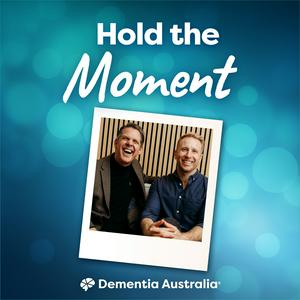
Get the free radio.net app
- Stations and podcasts to bookmark
- Stream via Wi-Fi or Bluetooth
- Supports Carplay & Android Auto
- Many other app features
Get the free radio.net app
- Stations and podcasts to bookmark
- Stream via Wi-Fi or Bluetooth
- Supports Carplay & Android Auto
- Many other app features


Hold the Moment
Scan code,
download the app,
start listening.
download the app,
start listening.


